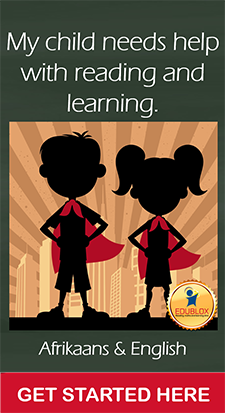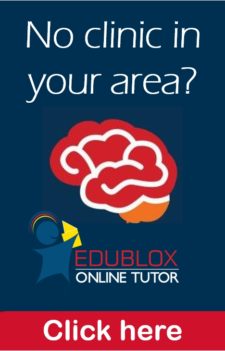
There were two important educational issues in the local and international spotlight during September and October 2016: Literacy Day, observed on 8 September 2016, and Dyslexia Awareness Month, which is observed annually during October. In support of Dyslexia Awareness Month, Edublox reading, maths and learning clinic examines the surprising root cause of dyslexia and shares tips on how parents can address their child’s reading difficulties.
‘The importance of literacy to prosperity and democracy in South Africa’ was a topic discussed at a Literacy Day breakfast event and panel discussion, hosted by the educational development programme, help2read. Panellists highlighted some of the key issues and challenges faced by the South African early education sector. According to Dr Nick Taylor, former CEO and current head of Education Evaluation and Research at the Joint Education Trust, the country’s most urgent educational priority is to promote reading and schooling from an early age, as brain sensitivity for the development of children’s foundational language skills is the greatest in the first few years of life. A study by Van der Berg supports this statement in concluding that potential access to university is already largely predetermined by Grade 4*.
Susan du Plessis, Director of Educational Programmes at Edublox, explains that the issues around the promotion of basic literacy skills and creating awareness around dyslexia are more intertwined than many might think. “Reading difficulties are a major culprit when children experience learning difficulties. Often, a variety of symptoms are simply grouped together, diagnosed and labelled under the umbrella term ‘dyslexia’ – a word feared and dreaded by many parents. We believe that a strong focus on the development of foundational reading skills can be the key to unlocking learning potential in all children – including those diagnosed with the problem,” she adds.
“An understanding of the causes of dyslexia can help parents support their children in overcoming it,” says Du Plessis. “Two important facts are especially relevant: firstly, that reading is not a natural or instinctive process, but an acquired skill that must be taught. Secondly, parents must remember that learning is a stratified process, during which one skill has to be acquired first, before it becomes possible to acquire subsequent skills. At the heart of this process and as the bottom rung of the ‘reading ladder’, is language. Skills, like visual processing, auditory processing and auditory memory form the second rung of this ladder, and must be taught first,” she explains.
Du Plessis shares some tips on how parents can help children prevent and overcome reading difficulties:
- Since language plays a vital role in reading, it is important to provide children with enough opportunities to hear language from infancy.
- If your child is experiencing problems like letter reversals, difficulties with letter order, poor comprehension, mispronunciations and poor recall, the best approach is to take immediate action.
- Approach a professional reading clinic specialising in cognitive development that focuses on aspects like concentration, perceptual skills, memory, and logical thinking.
- Before setting up a meeting with an educational practitioner, it often helps to list your observations and your concerns.
- Be sensitive toward a dyslexic child or a slow reader’s feelings. Most children look forward to learning to read and do so relatively quickly. For these children, however, the experience is very different. For them, reading, which seems to come effortlessly for everyone else, appears to be beyond their grasp.
Parents can breathe a sigh of relief as children’s academic performance can improve despite dyslexia. Abigail de Robillard, a mom from Durban, enrolled her dyslexic son at a reputable reading clinic and noted a change. De Robillard highlighted improvements in his overall self-confidence, his ability to manage schoolwork on his own, and his overall reading and concentration after just one term. “Dyslexia is a learning barrier – and I now truly believe that through hard work, the clinic will break these barriers and allow my son to harness all his real gifts, talents and abilities to be all that he can be, and above all, happy,” she says.
Edublox is a leading specialist in cognitive development, with 26 reading and learning clinics across Southern Africa. Edublox offers multisensory cognitive training, aimed at developing and automatising the foundational skills of reading, spelling and mathematics.
For more information about Edublox, visit www.edubloxsa.co.za
* Van der Berg, S. (2015). What the Annual National Assessments Can Tell Us About Learning Deficits Over the Education System and the School Career Year. Stellenbosch Economic Working Paper No. 18/15, November, 2015.







Leave a Reply